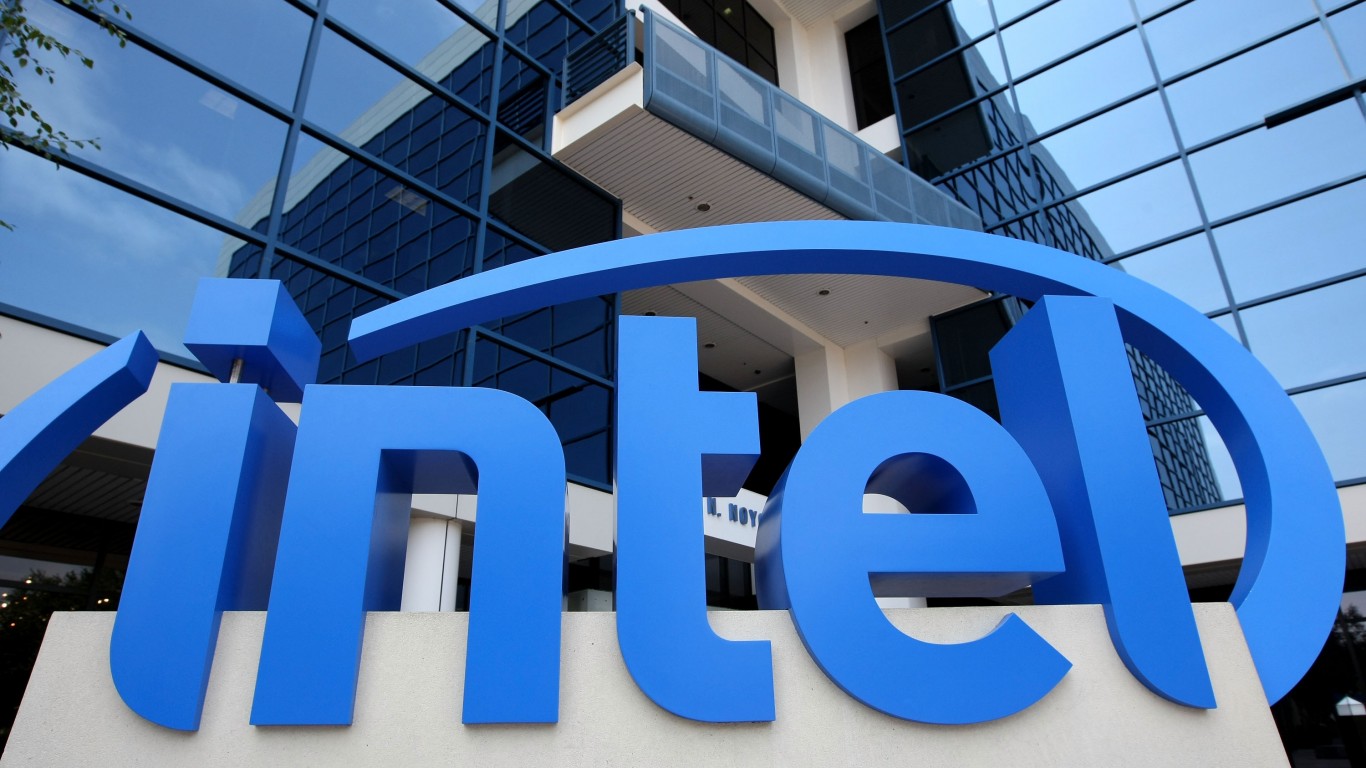

There were no notable earnings reports out after markets closed Thursday or before they opened Friday morning, so we have taken a moment to look at a few companies that reported late Wednesday or early Thursday.
European online auto retailer Cazoo beat on revenues and confirmed an outlook for the current year that is about triple the fiscal 2021 total. The stock added about 3.5% in Thursday trading and traded up another 3.4% in Friday’s premarket. Alcoholic beverage giant Constellation Brands beat estimates on both the top and bottom lines and issued guidance that was on the light side. Shares added 4.6% on Thursday and traded up more than 2% in Friday’s premarket.
Conagra reported inline profits and better-than-expected sales but issued downside guidance. Shares added less than 1% Thursday and traded down by about 0.1% early Friday. Levi Strauss also beat top-line and bottom-line estimates, but not by enough to fire up investors. Shares dipped by 0.7% on Thursday and were up about 0.2% in Friday’s premarket.
Here is a look at three companies set to report results before markets open on Tuesday.
Albertsons
Grocery store operator Albertsons Companies Inc. (NYSE: ACI) has added almost 90% to its share price over the past 12 months. Albertsons and rival Kroger earlier this week averted a strike by more than 60,000 southern and central coast California grocery store employees. The company has been on a tear, leading with its omnichannel initiatives and its revenue and profit increases. Investors will want to know if the company expects to be able to keep up the pace without adding to an already high level of debt.
Half of the 20 analysts covering the stock have a Hold rating on the shares, while seven rate the stock as a Buy or Strong Buy. At a recent price of around $34.75, the shares have outrun the median price target of $33.00. Based on a high price target of $42.00, the upside potential is about 21%.
Fiscal 2022 fourth-quarter revenue is forecast at $16.82 billion, which would be up by less than 1% sequentially and about 6.7% higher year over year. Adjusted earnings per share (EPS) are tabbed at $0.64, down 18.7% sequentially but up by 6.7% year over year. For the full fiscal year ending in February, Albertsons is expected to post EPS of $2.94, down 9.4%, on sales of $71.37 billion, up by 2.4%.
Albertsons share price to earnings multiple for fiscal 2022 is 11.8. For 2023, the multiple to estimated EPS of $2.76 is 12.6, and for 2024, it is 12.3 times estimated EPS of $2.83. The stock’s 52-week trading range is $17.73 to $37.99. The company pays an annual dividend of $0.42 (yield of 1.34%). Total shareholder return for the past year is 97%.
CarMax
Shares of used car retailer CarMax Inc. (NYSE: KMX) have dropped about 22% of their value over the past 12 months. The used car dealership sells, services and finances purchases at some 220 locations around the United States. Earlier this week, BofA analysts cut their Buy rating on CarMax to Neutral and lowered the $195 price objective to $165. With prices for new and used vehicles still rising, this downgrade would seem counterintuitive. However, U.S. consumers could delay new vehicle purchases, reducing turnover in the used car market and threatening the company’s sales and earnings growth.
Of 17 analysts covering CarMax stock, 12 have a Buy or Strong Buy rating and another four rate the shares at Hold. At a share price of around $98.40, the upside potential based on a median price target of $140.00 is 42.3%. At the high price target of $165, the upside potential is nearly 68%.
Fourth-quarter revenue is forecast at $7.60 billion, down 12.1% sequentially and up 45.3% year over year. Adjusted EPS are expected to come in at $1.30, down 15.1% sequentially but up 2.4% year over year. For the full 2022 fiscal year that ended in February, CarMax is expected to report EPS of $7.17, up 58.7%, on sales of $31.84 billion, up 68%.
The stock trades at 13.8 times expected 2022 EPS, 14.0 times estimated 2023 earnings of $7.07 and 13.7 times estimated 2024 earnings of $7.19 per share. CarMax’s 52-week range is $94.35 to $155.98. The low was posted Thursday. CarMax company does not pay a dividend, and total shareholder return over the past 12 months is negative 23%.
OrganiGram
OrganiGram Holdings Inc. (NASDAQ: OGI) is a Canadian company that grows marijuana and manufactures and sells a range of cannabis and cannabis-derived products in Canada. The company’s stock has dropped nearly 54% over the past 12 months and about 82% since reaching its all-time high in April of 2019. Shares got a boost last week when the U.S. House of Representatives approved legislation decriminalizing marijuana, but most of that has since been given back. The U.S. Senate is unlikely to agree, and so the party ends before it even gets going.
Of 13 brokerages covering the stock, nine have a Hold rating and the others have Buy or Strong Buy rating. At a share price of around C$1.85 per share, the upside potential based on a consensus price target of C$3.00 is 62.2%. At the high target of C$5.30, the upside potential is 186.5%.
Analysts have forecast second-quarter revenue at C$31.65 million, up 4.2% sequentially and 116% higher year over year. The adjusted loss per share is pegged at C$0.03, compared to a prior quarter loss of C$0.04 and a year-ago loss of C$0.06 per share. For full fiscal 2022 ending in August, analysts expect a per-share loss of C$0.08, much better than 2021’s loss per share of C$0.27. Sales are forecast to rise nearly 73% to C$136.88 million for the year.
OrganiGram is not expected to post a profit in either 2022 or 2023. In 2024, analysts have forecast a profit of $0.03, at a multiple of 69.7 to the current share price. The stock’s 52-week trading range is C$1.65 to C$4.26. The company does not pay a dividend and the total shareholder return for the past year is negative 53.2%.
Sponsored: Want to Retire Early? Here’s a Great First Step
Want retirement to come a few years earlier than you’d planned? Or are you ready to retire now, but want an extra set of eyes on your finances?
Now you can speak with up to 3 financial experts in your area for FREE. By simply clicking here you can begin to match with financial professionals who can help you build your plan to retire early. And the best part? The first conversation with them is free.
Click here to match with up to 3 financial pros who would be excited to help you make financial decisions.
Thank you for reading! Have some feedback for us?
Contact the 24/7 Wall St. editorial team.
 24/7 Wall St.
24/7 Wall St.


